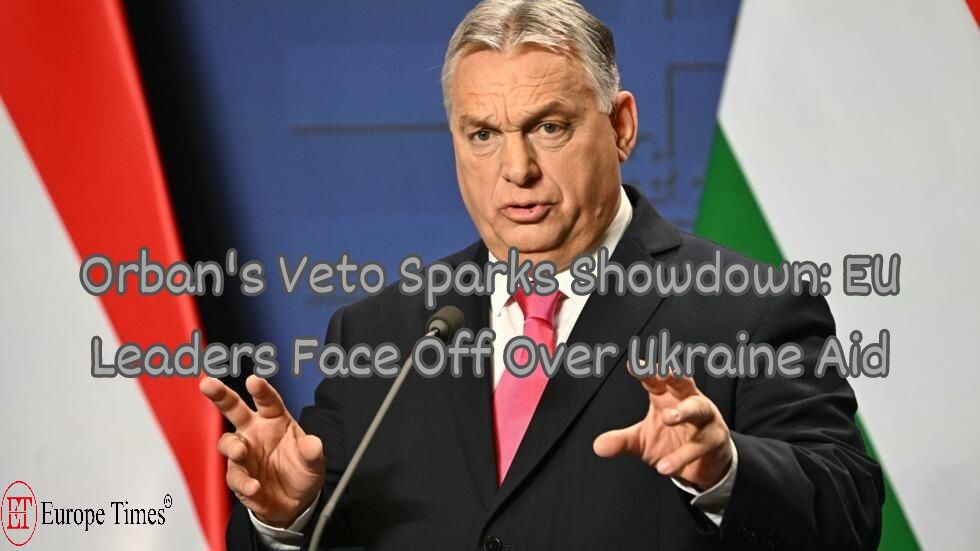Hungary’s Viktor Orban and EU leaders to face off over Ukraine aid at crucial summit

European leaders are gathering in Brussels with the aim of resolving a deadlock over financial aid for Ukraine, a €50 billion package that was vetoed by Hungary’s Prime Minister Viktor Orban in December. Orban’s decision is believed to be connected to the EU withholding €20 billion from Hungary due to concerns about human rights and corruption in the country.
This impasse is preventing crucial funding from reaching Ukraine, particularly as the second anniversary of Russia’s invasion looms. Orban, a close ally of Russian President Vladimir Putin, has consistently opposed EU sanctions on Russian oil and gas, contributing to the growing frustration among EU leaders with Hungary’s stance.
As the EU leaders attempt to address the Ukrainian aid issue, there are rumors of potential punitive actions against Hungary. Polish Prime Minister Donald Tusk has asserted that the EU will find a solution to support Ukraine, even if it means proceeding without Hungary’s approval. Reports from the Financial Times suggest that Brussels officials could take measures affecting Hungary’s economy if Orban continues to block the aid package. In response, Orban accused the EU of blackmail, emphasizing the need for a resolution.
The summit is unfolding against the backdrop of widespread farmers’ protests across Europe that have persisted for weeks. Farmers are demonstrating against EU measures aimed at making the agricultural sector more sustainable and the bloc’s decision to lift quotas on Ukrainian grain exports. The protests have alarmed many European leaders, prompting them to seek solutions from the EU to address farmers’ concerns.
The European Commission has made some concessions, proposing an exemption to an unpopular fallow-land requirement and introducing a “safeguard mechanism” to reimpose emergency tariffs on Ukrainian imports if necessary. However, the EU’s farmers’ association, Copa-Cogeca, has expressed dissatisfaction, stating that the proposed safeguard mechanism does not provide sufficient relief for producers.
Picture Courtesy: Google/images are subject to copyright
